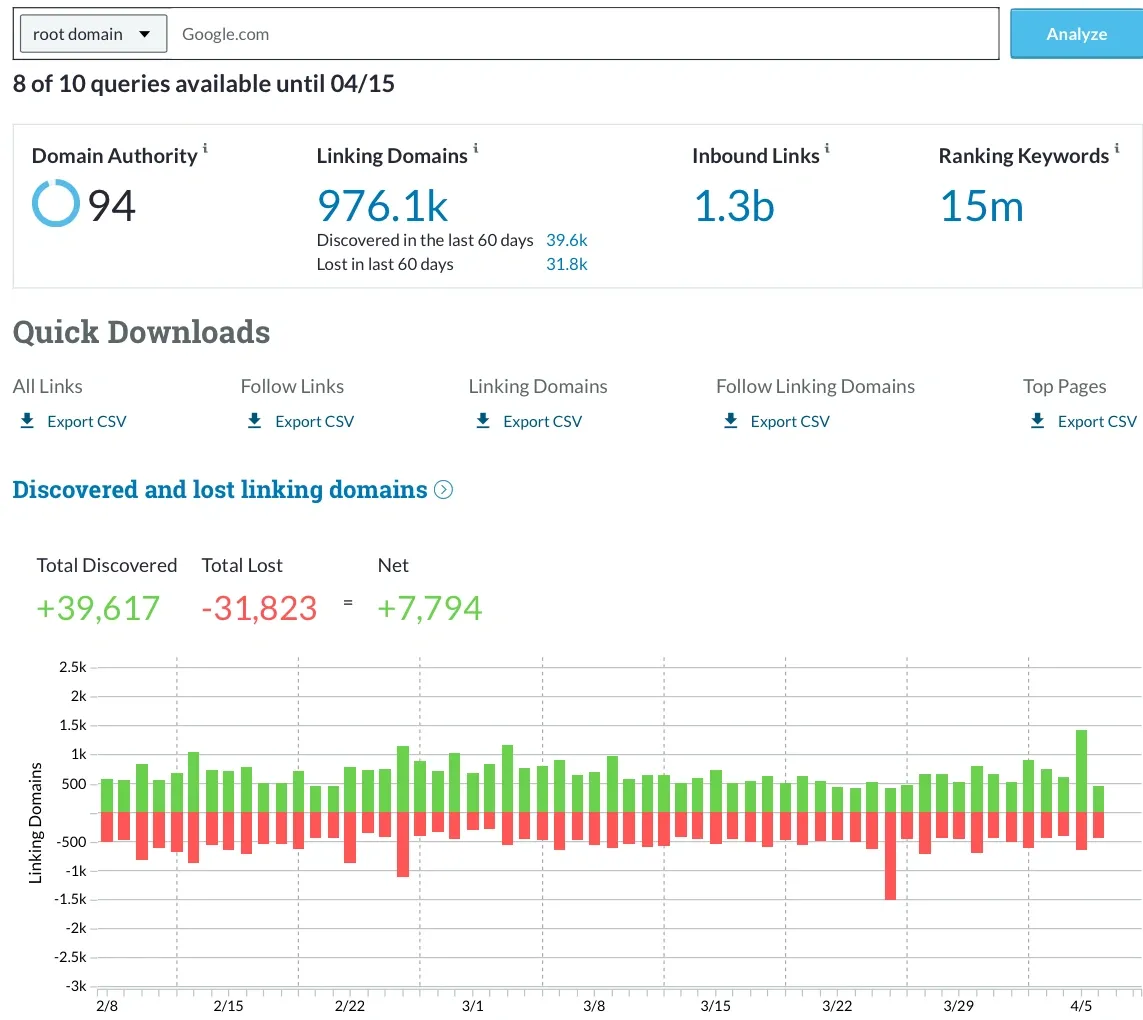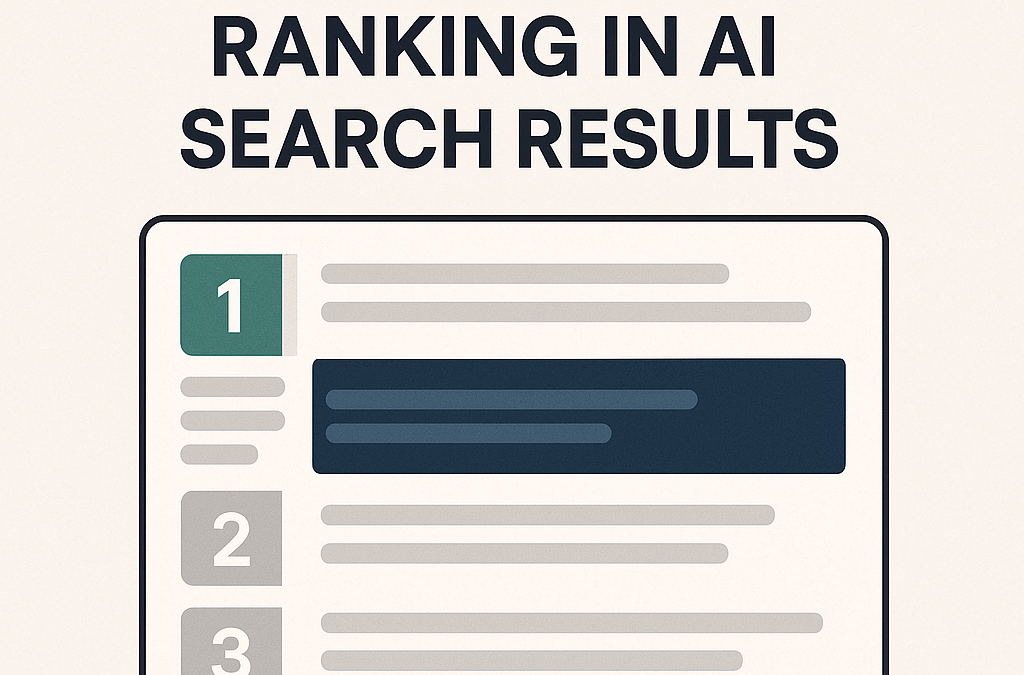As one of the most popular search engines in the world, Google has developed a sophisticated algorithm that takes into account hundreds of factors to determine the ranking of a website on its search engine results pages (SERPs).
For years, website owners and digital marketers have speculated that Domain Authority (DA) – a metric developed by Moz to measure the strength and credibility of a website – is one of these ranking factors.
However, in recent years, Google has confirmed that they do not use DA as a ranking factor, and there are several examples within the SEO industry that demonstrate this.
What is Domain Authority (DA)?
Before we dive into why Google doesn’t use DA as a ranking factor, let’s briefly discuss what it is. Domain Authority is a metric developed by Moz that predicts how well a website will rank on search engine results pages.
It is calculated based on a number of factors, including the number and quality of inbound links pointing to the site, the age of the domain, and the overall quality of the site’s content. DA is measured on a scale of 1 to 100, with higher scores indicating a stronger and more authoritative website.
Why doesn’t Google use DA as a ranking factor?
Despite its popularity among website owners and digital marketers, Google has repeatedly stated that they do not use DA as a ranking factor. In a tweet from 2019, Google’s John Mueller stated that “We don’t use DA. We use a lot of factors, but I wouldn’t call them ‘DA'”. This statement has been echoed by other Google representatives, including Gary Illyes, who stated in 2017 that “We don’t use Moz’s DA metric in our algorithm”.
So why doesn’t Google use DA as a ranking factor? The answer lies in the fact that DA is a proprietary metric developed by Moz, and is not an objective measure of a website’s authority or relevance.
While Moz’s methodology for calculating DA is based on factors that are generally considered to be important for SEO, it is not necessarily a reflection of how Google’s algorithm works. In fact, Moz themselves have acknowledged that DA is not a direct ranking factor for Google. In a blog post from 2019, Moz stated that “DA is not a direct ranking factor for Google or any other search engine”.
Examples of SEO related websites with low DA that rank well
If DA is not a ranking factor, then what factors does Google use to determine the ranking of a website? The answer is that there are hundreds of factors that are taken into account, including the quality of the content, the relevance of the content to the search query, the user experience of the website, and the number and quality of inbound links pointing to the site. To illustrate this, let’s look at some examples of SEO related websites that have a low DA score but still rank well on Google.
Example 1: Backlinko
Backlinko is a website that provides SEO advice and strategies. According to Moz, the site has a DA score of just 66, which is relatively low compared to other websites in its niche. Despite this, the site ranks on the first page of Google for a number of highly competitive keywords, including “SEO techniques”, “link building strategies“, and “on-page SEO”. This is likely due to the high quality of the content on the site, as well as the site’s strong user experience.
Example 2: Ahrefs Blog
Ahrefs is an SEO tool provider that also publishes a blog with SEO advice and case studies. According to Moz, the Ahrefs blog has a DA score of just 63, which is relatively low in comparison to its competitors. Despite this, the blog ranks on the first page of Google for a number of highly competitive keywords, including “backlink checker” and “SEO tool”. The Ahrefs blog achieves this through high-quality content that is relevant to its audience, as well as a strong social media presence and backlink profile.
Example 3: Neil Patel
Neil Patel is a well-known digital marketer who provides SEO advice and strategies on his website. Despite having a DA score of just 64 according to Moz, Neil Patel’s website consistently ranks on the first page of Google for a variety of highly competitive keywords, including “SEO tips”, “digital marketing”, and “content marketing”. This is likely due to Patel’s reputation as a thought leader in the industry, as well as the high-quality content and user experience on his site.
Overlap between DA and Sites that rank well
While Google has confirmed that they do not use DA as a ranking factor, there may still be some overlap between sites that have a high DA score and sites that rank well on Google.
This is because many of the factors that contribute to a high DA score, such as a strong backlink profile and high-quality content, are also important for ranking well on Google.
However, it’s important to note that having a high DA score does not guarantee that a site will rank well on Google, and vice versa.
What’s This All Mean?
While Domain Authority (DA) has long been considered an important metric for SEO, it’s important to understand that Google does not use it as a direct ranking factor. Instead, Google’s algorithm takes into account hundreds of factors to determine the relevance and authority of a website.
Examples within the SEO industry, such as Backlinko, Ahrefs, and Neil Patel, demonstrate that a low DA score does not necessarily prevent a site from ranking well on Google.
Digital marketers and website owners should focus on creating high-quality content and a positive user experience, as well as building a strong backlink profile, to improve their chances of ranking well on Google.









